Little millet, scientifically known as Panicum sumatrense, is a small-grained cereal that belongs to the Poaceae family. It’s commonly cultivated in India and other parts of Asia, where it serves as a staple food for many communities. Here’s a description of little millet along with its nutritional benefits and uses:
Description: Little millet is characterized by its small, round grains that are about the size of mustard seeds. The grains can vary in color from white to yellowish-brown. Little millet is a hardy crop that grows well in dry and arid regions, making it a valuable food source in areas with limited water availability. It has a slightly nutty flavor and a soft texture when cooked.
Nutrition Value:
- Energy 323 kcal
- Ash 1.82
- Fat 4.10
- Gluten Nil
- Fibre 11.90
- Protein 8.53
- Carbohydrate 63.02
Health Benefits:
- Gluten-Free: Little millet is naturally gluten-free, making it a suitable grain for individuals with celiac disease or gluten sensitivities.
- Rich in Fiber: Little millet is high in dietary fiber, which promotes digestive health, prevents constipation, and helps control blood sugar levels.
- Good Source of Protein: Little millet provides a moderate amount of protein, which is essential for muscle repair and growth, as well as overall body function.
- High in Iron: Little millet is rich in iron, an essential mineral that is important for the production of red blood cells and the prevention of iron deficiency anemia.
- Low Glycemic Index: Little millet has a lower glycemic index compared to other grains like rice or wheat, meaning it causes a slower and steadier rise in blood sugar levels, making it suitable for individuals with diabetes or those aiming to manage their blood sugar levels.
- Rich in Magnesium: Little millet contains magnesium, which is important for nerve function, muscle contraction, and bone health.
- Source of Essential Nutrients: Little millet provides essential nutrients like potassium, vitamin B6, and calcium, which are important for overall health, including heart health, energy metabolism, and bone health.

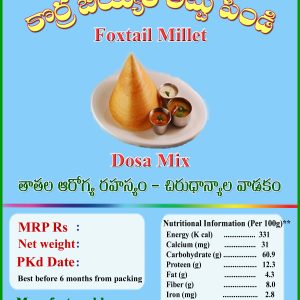
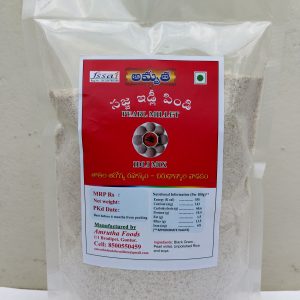
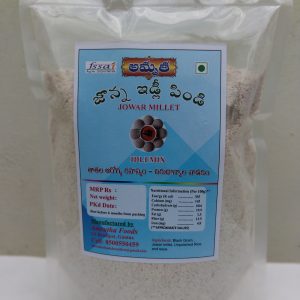
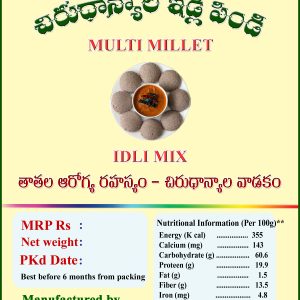


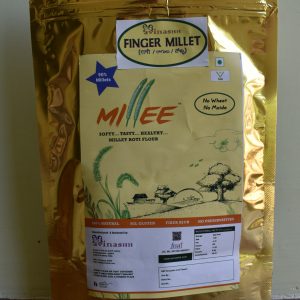
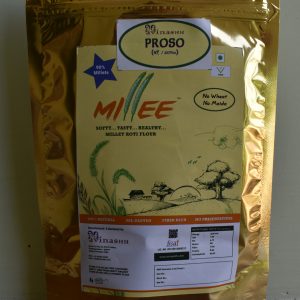
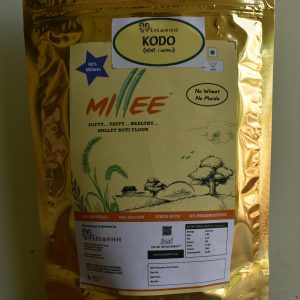
Reviews
There are no reviews yet.